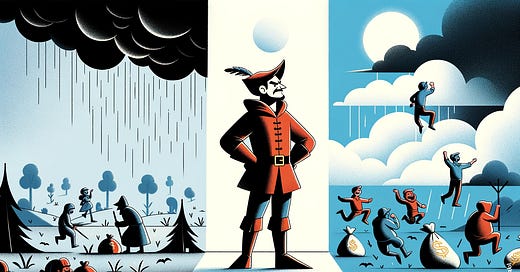Interesting times
Rate hikes are regressive. They take from the poor and give to the rich. Here’s why Robin Hood would be p***ed off
Economics | Explaining why rate hikes are regressive
Heavier credit card statements were an unwelcome lump of coal under the Christmas tree this season. Higher interest rates have increased credit card bills and made mortgages less affordable—a central bank gift that’s more “Fairytale of New York” than “Jingle Bells”. They’ve also increased the size of t…




